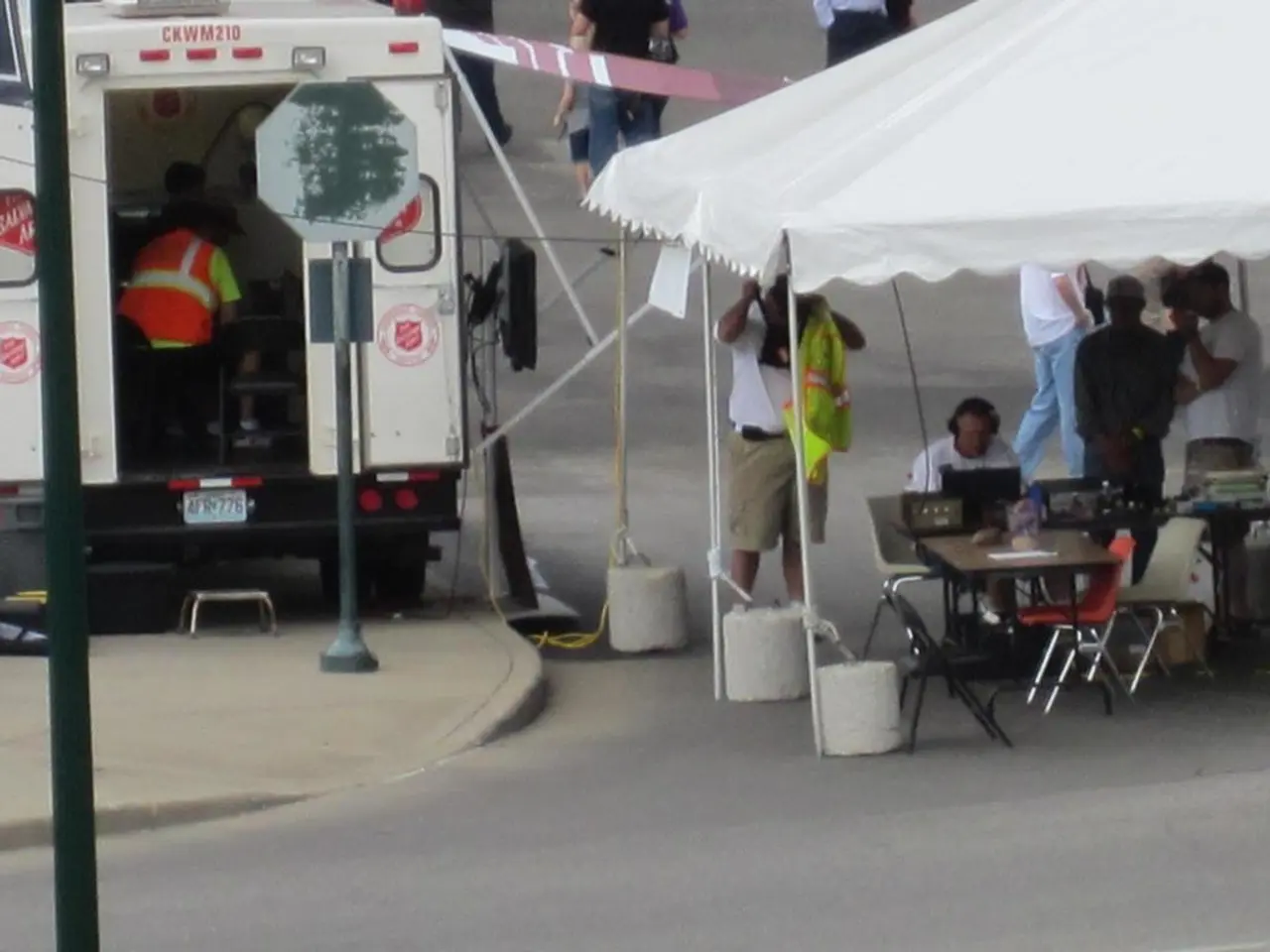Increased fatalities among Gaza residents due to lack of aid and hunger, as burial cloths are running low
In the conflict-torn Gaza Strip, the situation continues to deteriorate as starvation and violence claim more lives. Over the past 24 hours, 5 more people have died of starvation or malnutrition, bringing the total to 180 since the war began in October 2023. The UN reports that one in three people in Gaza go without food for days, and over half a million people are projected to face starvation and destitution by September 2025.
The root cause of this humanitarian catastrophe is the ongoing conflict, which has resulted in massive destruction, displacement, and a blockade severely restricting access to food, water, and medical supplies. The violence is further compounded by reports of Palestinians seeking food aid being shot and shelled, with at least 1,373 Palestinians killed while trying to access food since late May 2025.
Efforts to ensure safe humanitarian access have been insufficient. Temporary "humanitarian pauses" in hostilities, aid convoys, and limited airdrops have not been enough to meet the needs of the population. UN experts and agencies call for unrestricted and uninterrupted access of humanitarian aid into Gaza, highlighting that ongoing restrictions and attacks on aid infrastructure exacerbate the crisis.
Recent incidents include at least 40 Palestinians being killed by Israeli gunfire and airstrikes on Gaza on Monday. The UN agencies have stated that airdrops of food are insufficient and that Israel must let in far more aid by land. In response, Israel's military has dropped 120 aid packages containing food into Gaza "over the past few hours" by six different countries in collaboration with Cogat.
On August 4, 2025, Palestinians sought aid supplies from the US-backed Gaza Humanitarian Foundation in the central Gaza Strip. However, more than 1,000 people have been killed trying to receive aid in the Gaza enclave since the Gaza Humanitarian Foundation began operating in May 2025. The Hamas-run Gaza government media office reported that over 600 aid trucks have arrived since Israel eased restrictions in late July, but many have been looted by desperate displaced people and armed gangs.
Palestinian and UN officials stated that Gaza needs around 600 aid trucks to enter per day to meet the humanitarian requirements, the number Israel used to allow into Gaza before the war. Water shortages in Gaza are further compounding the hunger and displacement crisis. During the past week, over 23,000 tonnes of humanitarian aid in 1,200 trucks have entered Gaza, but hundreds remain undelivered at aid distribution hubs.
Israeli Prime Minister Benjamin Netanyahu has announced protected routes for aid convoys in Gaza, and he plans to convene his security cabinet this week to discuss how the military should proceed in Gaza. Despite these efforts, the total number of Palestinians killed by Israeli forces since the war began is over 60,000, according to Gaza health officials.
The ongoing crisis in Gaza is a complex and urgent humanitarian concern. The UN Secretary-General, human rights officials, and humanitarian agencies urge an immediate, permanent ceasefire and a significant surge in aid supplies to prevent further loss of life and suffering.
- Amidst the ongoing conflict in Gaza, the necessity for mental-health support and resources has significantly escalated due to the deteriorating living conditions and rising death toll.
- As the health situation in Gaza worsens, concerns about nutrition and food security have escalated, with over half a million people projected to face starvation and destitution by September 2025.
- The political landscape and war-torn region of Gaza pose considerable challenges to a person's career development, making it difficult for many to find stable employment opportunities and sustain their livelihoods.
- Despite the ongoing violence and conflict in Gaza, fitness-and-exercise remains essential for maintaining both physical health and mental well-being, especially for those who are displaced and living in harsh conditions.
- The unfolding crisis in Gaza has attracted widespread attention in the general-news, humanitarian-news, and science-and-technology spheres, as the international community grapples with finding lasting solutions and providing essential aid.
- Government officials, lobbyists, and media outlets debate the economic repercussions of the ongoing conflict in Gaza on businesses and industries worldwide, particularly in the sectors of food production and exportation, as well as health-and-wellness services and products.




